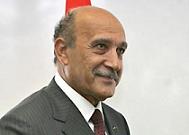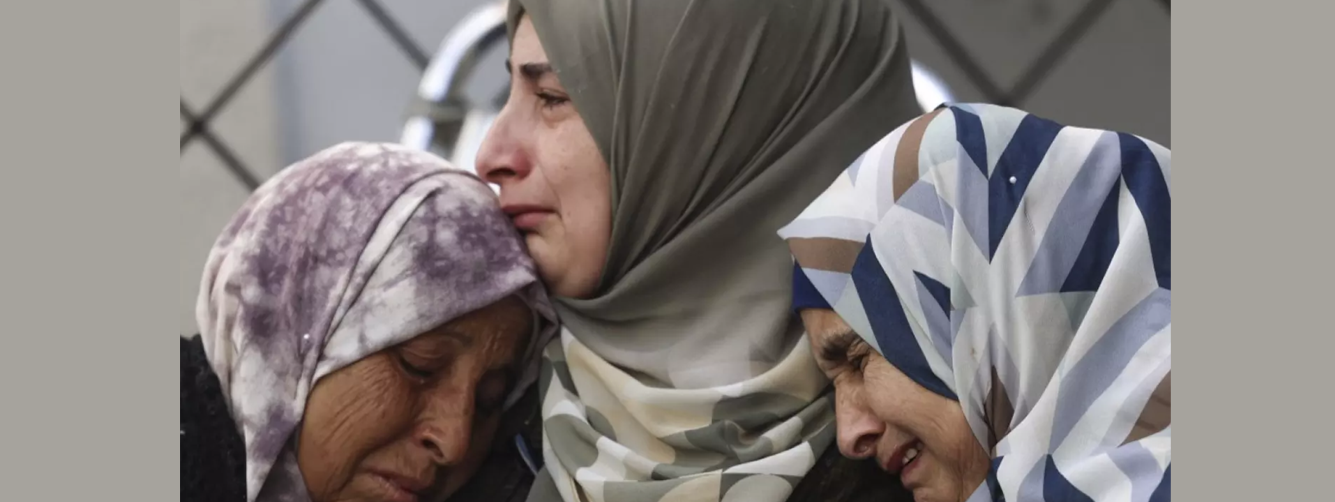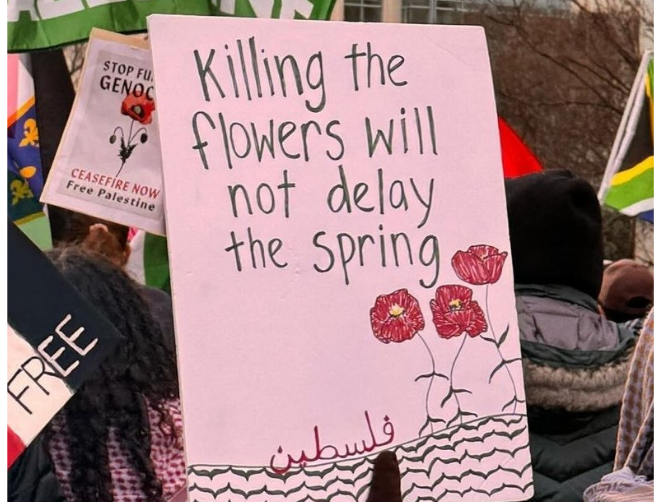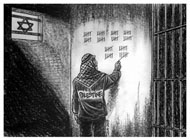
Egypt’s Intelligence Chief Omar Suleiman was made to wait two weeks to present his brokered peace proposal which bound Hamas with the other 12 politically-affiliated resistance groups operating in Gaza to an initiative for a “comprehensive and reciprocal period of calm to be applied progressively, first in Gaza and then in the West Bank”. Despite the escalation in violence and the initial perception of the agreement as “not serious”, Israel extended an invitation to the Egyptian mediator to present the proposal, but only after Israel had finished celebrating the 60th anniversary of their independence.
Finally, Omar Suleiman arrived in Jerusalem to discuss the potential for a “period of calm” [tahdi’a] on May 12. As Egypt’s intelligence chief had been eclipsed by the commemoration of Israel’s independence previously, this time his meeting with Prime Minister Ehud Olmert and Defense Minister Ehud Barak occurred just two days before the arrival of President G.W. Bush. The incumbent US President “will come not as somebody who demands but somebody who encourages”. Instead, the president of the world’s sole superpower will be fully focused on marking 60 years of Israeli freedom and democracy.
How can one possibly precede or open for the most powerful man in the world, especially when all those involved are preoccupied with his imminent arrival? Testament to this observation is the remarkable speed with which Suleiman was received, given a response and dismissed. Having spent weeks of deliberating with Hamas and other military wings to secure a ceasefire, Israel simply dignified their mediating efforts with a brief and almost indifferent counter offer. In all honesty, with the amount of time allocated to Suleiman on his visit to Israel, he would have had a better chance of emailing the report to Olmert and Barak as an attachment on the morning of May 8 while the ministers took care of their daily tasks rather excitedly and not necessarily diligently before rushing off to celebrate.
Nevertheless, Omar Suleiman received Israel’s opinions on the tahdi’a and succeeded in acquiring a list of prerequisites, taking the form of a phase approach, to offer Hamas on May 13.
In the first phase, Israel approved of a gradual lull in violence in Gaza which would apply to both sides and would involve a cessation of armed attacks. Meanwhile, Israel would continue to maintain operations in the West Bank. If this is achieved, Israel would then allow more food into Gaza and open the Rafah crossing into Egypt, only with the consent of Palestinian President Mahmoud Abbas. Lastly, Israel stipulated that once these conditions have been met, Gilad Shalit, the Israeli soldier kidnapped on 23 June 2006, would have to be released as an interim step towards allowing 450 Palestinian prisoners to be freed. Concerning the last phase, state officials in Jerusalem announced that they “hope this release will be part of the unwritten truce between the two sides”.
The same statement also viewed the chances of success with a degree of pessimism with state officials asserting that “based on our previous experience with Hamas I wouldn’t say we’re overly optimistic, but at the moment this is a viable scenario”.
Conversely, the Gaza groups constructed a three point plan. Firstly, a “tahdi’a” would be recognized on both sides with a halt to violence; second, Israel would end the blockade with the Rafah crossing opened for Palestinians to replenish supplies and lastly, the ceasefire would start in Gaza and be extended to the West Bank within six months. If this offer was ignored Hamas leader Mahmoud Zahar declared that “it will be our right to defend our people in all legitimate ways”. Furthermore, in immediate reply to Israel’s condition that Gilad Shalit be released, former Foreign Minister Zahar reiterated that “the issue of prisoner exchange is completely separate from the period of calm”.
Of course, nothing that “terrorist” groups concocted would ever have been accepted on the basis of its first draft, with Israel being the dominant force in the melee, but why has Israel altered the proposal so it includes stipulations that are almost completely in contrast to the main crux of Palestinian grievances? There are two explanations and incentives behind Israel’s response to Omar Suleiman. It could be a genuine list of conditions which address Israeli concerns and insecurities regarding a viable ceasefire. Alternatively, this is a rapidly but intentionally devised ploy which produces a document that ignores the Palestinian components and replaces them with almost unacceptable conditions while choreographed in such a way that absolves them from blame if it is rejected. This would invariably excuse Israel from involvement in a ceasefire, prove Hamas as untrustworthy while portraying Israel as morally superior and mature to the international community with respect to securing a ceasefire.
Applying the first scenario, Israel has refrained from a significant reprisal in Gaza for the deaths of Jimmy Kdoshim [48] on May 9 and Shuli Katz [70] on May 12, killed by rocket attacks on Israel with Hamas and Islamic Jihad taking responsibility respectively. Although Israel has killed eight Palestinians since the incidents, this number is far lower than the 120 killed during Operation “Hot Winter” in Gaza, following the previous rocket victim, Roni Yechiah, in February 2008. On this occasion, Israel is ostensibly demonstrating to the world its self- control, implying that they are willing to pursue a ceasefire agreement but have certain reservations, such as fearing that Hamas does not possess the authority to curb rocket attacks from other resistance groups. After all, Israel did meet with Omar Suleiman to discuss arrangements and their insistence that President Abbas consents to the opening of Rafah crossing may be to monitor any smuggling of arms that might be going on. Likewise, Israel’s adamant claim to continue operations in the West Bank could be to ensure a steady climate is not compromised and the release of Gilad Shalit should occur as a token of good faith or so that signs of serious advancements can quintessentially be realized for peace to ensue. These all may be part of Israel’s blueprint to reach a successful and sustainable ceasefire. From Olmert’s perspective and in support of this notion, the prime minister has already lost the confidence of his people due to the police probe into the funding of his campaigns for Jerusalem mayor. Maybe Olmert, having nothing to lose, is attempting to establish a positive legacy and forge an agreement?
Then there is the strategic purpose of creating conditions that contradict their projected message. The lack of a massive retaliation in Gaza for the deaths of two Israeli citizens was more due to Bush’s arrival masquerading as observance and contemplation of a ceasefire accord. Israel could not afford to launch an offensive in Gaza on the eve of the US President’s arrival in Israel to celebrate their independence. If Israel strikes, it will probably do so after the president leaves as they did in January when Israel killed 36 Palestinians directly after the President had departed. The recent rocket attacks on Israel are no factor in deciphering whether Hamas can control them in the event of a ceasefire, dispelling possible Israeli insecurities, as they were fired before Omar Suleiman visited Jerusalem. Hamas spokesperson Abu Obeida did confirm that “we will continue to fire until the last moment before a truce is completed”.
Gaza is presently low on the Israeli agenda while the public believes the domestic issues over the prime minister’s most recent scandal and his subsequent self-professed unpopularity are more pressing and in need of attention. In answer to Olmert’s priorities as a deteriorating prime minister, a poll conducted by Yediot Aharonot reported that 59% of the Israeli public thinks that Olmert should step down with only 10% confident that he is best suited to serve as prime minister. If Olmert was so intent on promoting the ceasefire, why has he only offered to travel to Egypt in the next few weeks to address the issue when President Bush will gather in Sharm el Sheikh next week with his Egyptian and Palestinian counterparts?
A senior Israeli official admitted that “Israel must not come across in the international community as a naysayer regarding the truce in Gaza”. This is completely accurate. Therefore how is this situation, conveyed with such frustration and disdain, remedied? Israel purposefully adopts a policy of including mandatory conditions that Hamas will never and can never accept. Stationing PA monitors at the Rafah crossing with the current stagnant relationship between the PA and Hamas is a highly contentious subject that would take a long time to resolve, especially considering that Israel will not allow the PA to talk to Hamas independently. Furthermore, Hamas and the other groups cannot idly stand by in accordance with an Israeli initiative while Palestinians continue to be killed in the West Bank. Similarly, demanding that Gilad Shalit be released as an interim stage to Palestinian prisoners being freed [not an original clause] is simply unrealistic as the young Israeli captive is a highly lucrative bargaining chip and allows Hamas to have influence, albeit limited, in this back and forth mediation.
This ambiguous mixture of actions and message from Israel adds to the general confusion surrounding the prospects of a ceasefire. Israel portrays itself in one direction to satisfy its foreign and domestic obligations, but hidden in these gestures and supposed developments are examples of deception whereby their agenda remains as consistent and stringent as ever.
While Israel receives international recognition from world leaders over their 60th anniversary, Omar Suleiman, who was openly upset with Israel’s response, will reluctantly deliver Israel’s official response to Hamas in Gaza. While the public may sense an air of progression concerning the prospects for a ceasefire, this possibility will be tested when Israel concludes its celebrations and reverts back to daily business.










